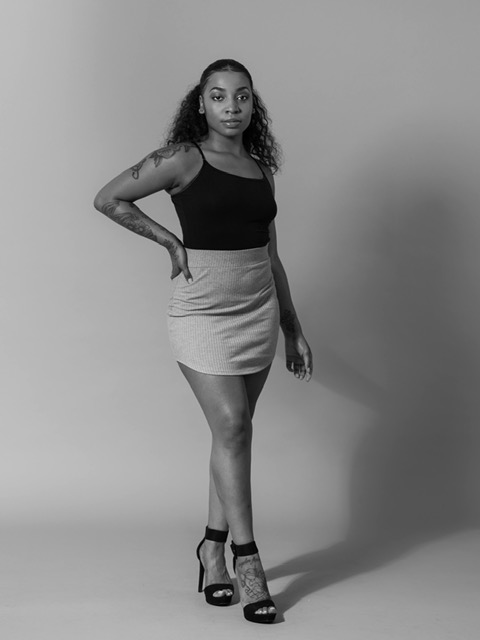A woman who grew up in Durham’s child welfare system is sharing her story in the hopes that things will change for Black children, who, according to local agencies, often face alarming disparities and are over-represented in the system.

Faith Harding, 21, says the memories from her childhood in the system are painful to confront.
“We would all bathe in the same water,” Harding said.
“My older sister would go first and then my middle sister. Then I was last, so by the time I got in, the water was brown.”
Starting at the age of five, Harding and her two sisters jumped from one foster family to another, with each household predominantly white and unable to take proper care of Black children.

“For our hair, we can’t just go to bed with wet hair every night,” she said, adding that she and her two sisters both caught head lice.
In addition to being neglected, Harding says she also faced emotional mistreatment at school and at home. She says there were times her eldest sister would be punished by getting locked out of the house at night. She also remembers being late for school when she was six, and as a consequence, having to walk to school, which she says was a long distance away and near a small highway.
“It’s not like it was up the street,” Harding said.
“Now, looking at it, I could have gotten kidnapped.”

Get daily National news
In addition, she says when she was in the care of white families, the girls were forced to “eat things (they) didn’t like,” and they were never allowed into their foster parents’ rooms, fearing the sisters would “steal.”
When Harding was seven, she and her sisters were placed in a stable Black home, where they stayed until aging out of care.
She says her previous experiences are something no child should have to endure.
Steven Woodman, executive director of the Durham Children’s Aid Society, says the organization recognizes that its “services to racialized people — to Black people, to Indigenous people — has not been what it should be.”
“We have approached this work through an institutional lens of systemic bias and this is something the child welfare field has been confronting very courageously over the last number of years.”
Woodman says 15 per cent of children in the local CAS are Black.
However, the issue spans beyond the region. The province has been working to address these disparities by providing funding to agencies to better support kin and cultural matching.
Jill Dunlop, associate minister of children’s issues, says the province is working on “changing that system and the way of thinking to better bring the supports together in the community and really collaborate all the support services to keep families together.”
Meanwhile, a provincewide program led by the African Canadian Community and the Ontario Association of Children’s Aid Societies called One Vision One Voice was launched in 2016 to advocate for more equitable care for Black children in the welfare system.
The program is currently in its third phase and has made several recommendations to address ongoing disparities, including placement of Black youth with African Canadian kin and families, and “working with CAS staff (from boards to front-line staff) to conduct an organizational anti-Black racism needs assessment and to create individualized implementation plans.”
Veralyn Alleyne, the co-chair of the Durham CAS community advisory council, says the Black community is also advocating for increased education around “proper referrals.”
She says this is to ensure that anyone referring a child into the system is “educated on what is a proper referral, so you’re not calling because somebody brought roti to school.”
Alleyne adds that children who end up in the system have a higher risk of facing negative long-term implications.
“They call it the school-to-prison pipeline,” she said.
“It starts in the schools many times. They end up in the child welfare system, and the output many times, unfortunately, is the justice and penal system.”
Woodman says the Durham CAS is currently focusing on kin recruitments, meaning if there is a “relative that is involved with the child welfare system, please be talking about that within your family networks to see if there is a place where these children can stay within the family network.”
“This provides a better cultural match and a long-term relationship for the children, which they so desperately need.”
As for Harding, the young woman is also hoping she can do her part to transform the system, as she has chosen mental health and addictions for her post-secondary studies in honour of her late sister, Lydia.
With tears in her eyes, Harding said her sister “ended up taking some things to cope with her life, which was pretty hard.”
“I got into this field so that maybe I can help other families like my own.”









Comments
Want to discuss? Please read our Commenting Policy first.